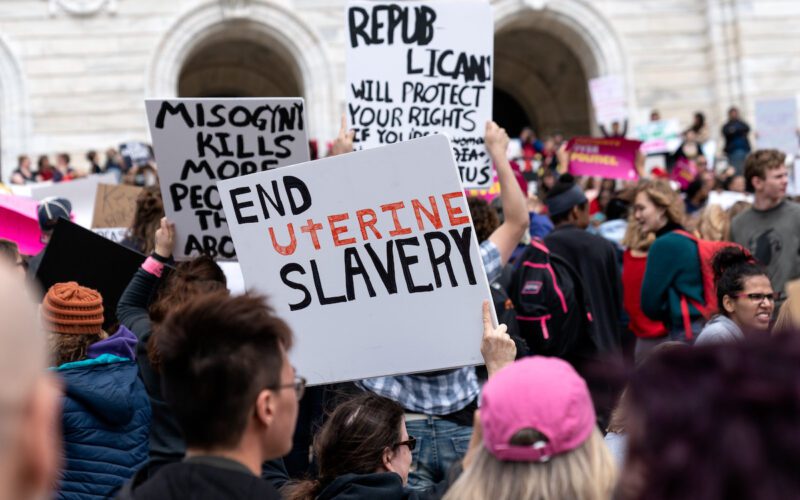Purvi Patel, an Indian American woman living in Indiana, was convicted of feticide in 2015 for allegedly inducing her own abortion against state law and allowing her baby to die—largely considered the first case in which a state’s feticide law was successfully applied to punish someone for attempting an abortion.
The criminal prosecution of Patel, who in 2015 sought care in an emergency room and told doctors that she’d had a miscarriage and left the stillborn’s fetal remains in a dumpster, had major implications that continue today as red states increasingly restrict abortion access.
How it happened: Patel had said that she disposed of the remains, which police recovered, because she hadn’t known what to do. Whether the baby was born alive remains a point of dispute.
- Law enforcement later found that Patel had allegedly texted a friend about ordering abortion-inducing pills from a Hong Kong pharmacy and, after taking them, messaged the friend, “Just lost the baby.”
- Patel was ultimately charged with felony child neglect and feticide, the latter of which didn’t apply to legal abortions in Indiana. Prosecutors argued, however, that it was illegal to order the pills she took online even though they are legally prescribed in the U.S.
Worth noting: Though opponents of abortion have long said their goal is not to criminalize people who get abortions but rather those who perform abortions, Patel’s prosecution—and 20-year sentence—was alarming for reproductive health advocates and Asian Americans, many of whom pointed out that it’s a slippery slope where abortions, miscarriages, and stillbirths are involved.
- It also didn’t go unnoticed that Patel is a brown, Asian American woman. In fact, just a few years earlier, Indiana prosecutors had pursued a similar feticide charge against Bei Bei Shuai, a Chinese immigrant who attempted suicide while pregnant. Though the charges were eventually dropped after she pleaded guilty to a lesser charge, both cases reinforced concern that any move to restrict and criminalize abortion would disproportionately fall on women of color.
The latest: In 2016, Patel was released from prison after the Indiana Court of Appeals vacated her convictions and ruled that the feticide law was not meant to prosecute abortion seekers.
- It remains a crime to harm a fetus in at least 38 states as of December, according to the National Conference of State Legislatures. These types of laws were initially enacted to protect pregnant people, specifically in cases of domestic abuse.
- Patel may have been the first, but legal experts say that pregnancy loss prosecutions are expected to increase in the wake of the Supreme Court’s decision to overturn Roe v. Wade.
“Without Roe and Casey pushing back the line on fetal person, we are about to see the full re-imagination of criminal and civil codes in this country in the states that have already redefined fetuses and fertilized eggs and embryos as children or as human beings,” Dana Sussman, acting executive director of the nonprofit now known as Pregnancy Justice, told NPR in July.









